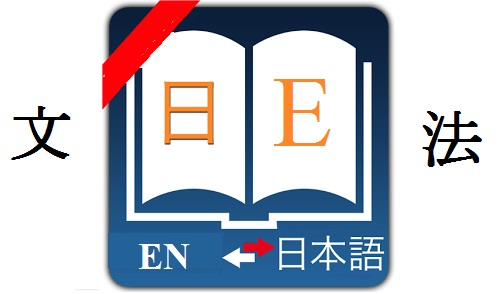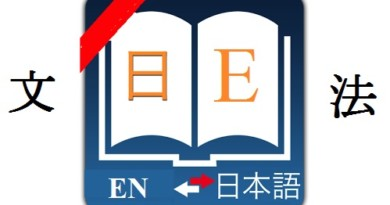Japanese どころか grammar dokoroka

Let’s learn Japanese どころか grammar dokoroka :
Contents
Japanese どころか grammar dokoroka
JLPT level : N3
Formation :
Vる+どころか
Aい+どころか
Aな+どころか
N+どころか
Meaning : Describe the opposite meaning with the previous part of the sentence.
Japanese どころか grammar dokoroka
Example :
A「石田さんは失業しているそうだよ。」
B「失業しているどころか。彼は大企業の社長ですよ。」
A : “Ishida san ha shitsugyou shiteiru sou da yo.”
B : “Shitsugyou shiteiru dokoro ka, kare ha daikigyou no shachou desu yo.”
A : “It is said that Mr. Ishida is unemployed.”
B : “Far from being unemployed. He is the president of a big company.”
A「東京は今寒いでしょう?」
B「寒いどころか、今7月の真ん中のように暑いですよ。」
A : “Toukyou ha ima samui deshou?”
B : “Samui dokoro ka, ima shichigatsu no mannaka no you ni atsui desu yo.”
A : “Is Tokyo cold now?”
B : “On the contrary, it’s hot like in the middle of July.”
あの女の人は優しいどころか、とても悪質な人だと感じられます。
Ano onna no hito ha yasashii dokoro ka, totemo akushitsu na hito da to kanji raremasu.
Instead of being kind, that woman is a vicious person.
新幹線は早く来るどころか、どこかで事故に遭って知らせられた時間通りに来られない。
Shinkansen ha hayaku kuru dokoro ka, doko ka de jiko ni atte shirase rareta jikan doori ni korarenai.
Instead of coming early, the Shinkansen will not be able to come on time as announced because of an accident somewhere.
台風は大きいどころか、ただ小雨で風が吹いていたんですよ。
Taifuu ha ookii dokoro ka, tada kosame de kaze ga fuite itan desu yo.
Far from a big typhoon, it was just a light rain and the wind blowing.
夏休みはゆっくり休むどころか、来年は大学試験を受けるので毎日勤勉に勉強しているよ。
Natsu yasumi ha yukkuri yasumu dokoro ka, rainen ha daigaku shiken wo ukeru node mainichi kinben ni benkyou shiteiru yo.
Instead of enjoying the summer vacation, since I will take a university exam next year, I study hard every day.
留学するのは嬉しいどころか、いろいろなことをしなきゃならないのでとても心配しますよ。
Ryuugaku suru noha yorokobashii dokoro ka, iroiro na koto wo shinakya naranai node totemo shinpai shimasu yo.
Far from being happy to study abroad, I am very worried because I have to do a lot of things.
彼女は若いどころか、今50歳ぐらいですよ。
Kanojo ha wakai dokoro ka, ima go juu sai gurai desu yo.
Far from being young, she is about 50 years old now.
A「佐藤さんは結婚したそうですよ。そんなに若いなのに…」
B「結婚するどころか、恋人も一人いないそうですよ。」
A : “Satou san ha kekkon shita sou desu yo. Sonna ni wakai na noni…”
N : “Kekkon suru dokoro ka, koibito mo hitori inai sou desu yo.”
A : “It is said that Sato is married. She is so young…”
B : “Far from getting married, it seems that she doesn’t even have a lover.”
英語がうまいどころか、日常会話もできないほどまずいです。
Eigo ga umai dokoro ka, nichijou kaiwa mo dekinai hodo mazui desu.
Far from being good at English, I’m so bad that I can’t speak daily conversation.
連休は旅行するどころか、毎日家で寝るだけですよ。
Renkyuu ha ryokou suru dokoro ka, mainichi ie de neru dake desu yo.
Instead of traveling on consecutive holidays, I only sleep every day at home.
先生は俺の質問を答えるどころか、逆に私に聞いたよ。
Sensei ha ore no shitsumon wo kotaeru dokoro ka, gyaku ni watashi ni kiita yo.
Instead of answering my question, the teacher conversely asked me.
たくさん食べるどころか、米も一粒食べませんでした。
Takusan taberu dokoro ka, kome mo hitotsubu tabemasen deshita.
I didn’t eat much, even a grain of rice.
Japanese どころか grammar dokoroka
Variations of Japanese どころか grammar dokoroka
どころか…ない (dokoro ka… nai)
Usage :
どころか…さえ(も)…ない
どころか…も…ない
どころか…だって…ない
Meaning : Describe the meaning “even…not…, let alone…”. It has the similar meaning to [どころか]
Japanese どころか grammar dokoroka
Example :
日本人でも漢字どころかカタカナさえ読めない人もいるよ。
Nihonjin demo kanji dokoro ka katakana sae yomenai hito mo iru yo.
There are some Japanese people who can’t even read Katakana, let alone Kanji .
A「田中さん、お金持ちそうですよ。最近新しい車を買ったばかりって言われますよ。」
B「新しい車どころか自転車さえ買えないよ。」
A : “Tanaka san, okane mochi sou desu yo. Saikin atarashii kuruma wo katta bakari tte iware masu yo.”
B : “Atarashii kuruma dokoro ka jitensha sae kaenai yo.”
A : “Mr. Tanaka seems to be rich. I heard that he recently bought a new car.”
B : “He can’t even buy a bicycle, let alone a new car.”
5年間日本語を勉強している私はなのに敬語どころか日常会話でもスラスラと話せないんですよ。
Go nenkan nihongo wo benkyou shiteiru watashi na noni keigo dokoroka nichijou kaiwa demo surasura to hanasenain desu yo.
I’ve been studying Japanese for 5 years, but I can’t even speak fluently in daily conversation, let alone honorifics.
あの人はコンピューターを修理するどころか、起動ボタンさえ見つけられなかったよ。
Ano hito ha konpyu-ta- wo shuuri suru dokoro ka, kidou botan sae mitsuke rarenakatta yo.
Far from repairing the computer, that person couldn’t even find the start button.
A「ねえ、手紙をロシア語で書いてくれない。君はロシア語がうまいそうだ。」
B「ロシア語で手紙を書くどころか、アルファベットさえ知らない。」
A : “nee, tegami wo roshia go de kaite kurenai. Kimi ha roshia go ga umai sou da.”
B : “Roshia go de tegami wo kaku dokoro ka, arufabetto sae shiranai.”
A : “Hey, can you write a letter in Russian for me? It is said that you are good at Russian.”
B : “Far from writing letters in Russian, I don’t even know the alphabet.”
リンさんは海外旅行するどころか、故郷さえ帰れないほど忙しい人だ。
Rin san ha kaigai ryokou suru dokoro ka, kokyou sae kaerenai hodo isogashii hito da.
Ms. Rin is so busy that she can’t even return to her hometown, let alone travelling abroad.
漫画どころか、簡単な絵でも描けません。
Manga dokoro ka, kantan na e demo kakemasen.
I can’t draw even a simple picture, let alone manga.
あの人は親戚どころか、子供にさえ厳しい人ですよ。
Ano hito ha shinseki dokoro ka, kodomo ni sae kibishii hito desu yo.
That person is strict even with his children, let alone his relatives.
トムさんは会社の計画どころか、自分のスケジュールも立てないよ。
Tomu san ha kaisha no keikaku dokoro ka, jibun no sukeju-ru mo tatenai yo.
Mr. Tom can’t even set up his own schedule, let alone the company’s plan.
現在1万円どころか、1円さえ持たないよ。
Genzai ichiman en dokoro ka, ichien sae motanai yo.
I currently don’t even have 1 yen, let alone 10,000 yen.
仕事は順調に進むどころか、計画通りに一歩も進まない。
Shigoto ha junchou ni susumu dokoro ka, keikaku doori ni ippo mo susumanai.
Instead of going smoothly, my work doesn’t take even one step further as planned.
Japanese どころか grammar dokoroka
Other variations
どころではない (dokoro dehanai)
Usage :
Nどころではない
Vているどころではない
Meaning : Describe the meaning “this is not the time…”
Japanese どころか grammar dokoroka
Example :
今ゆっくりしているどころではない。仕事は山ほどたくさん積んでいますよ。
Ima yukkuri shiteiru dokoro dehanai. Shigoto ha yama hodo takusan tsundeimasu yo.
This is not the time to relax. The work has piled up like a mountain.
A「現在寝るどころではないよ。皆は慌てて締め切りを追って仕事をしているよ。君はちゃんと皆にごめんと言いなさいよ。」
B「ごめんなさい。疲れたので…」
A : “Genzai neru dokoro dehanai yo. Mina ha awatete shimekiri wo otte shigoto wo shiteiru yo. Kimi ha chanto mina ni gomen to ii nasai yo.”
B : “Gomennasai. Tsukareta node…”
A : This is not the time for sleeping. Everyone is working in a rush to meet the deadline. Say sorry to everyone.
B : “I’m sorry. Because I’m tired…”
心配しているどころではない。勤務でしなきゃならないことはまだ残っているし…
Shinpai shiteiru dokoro dehanai.Kinmu de shinakya naranai koto ha mada nokotteiru shi…
This is not the time to worry. There is still work I have to do….
A「おい、見るどころではないよ。ちょっと手を貸してよ。」
B「はい、はい、すぐ来るよ。」
A : “Oi, miru dokoro dehanai yo. Chotto te wo kashite yo.”
B : “Hai, hai, sugu kuru yo.”
A : “Hey, this is not the time to stare. Give me a hand.”
B : “Yes, yes, I’ll come soon.”
まだ負けるっていうことはないので泣いているどころではない。
Mada makeru tte iu koto ha nai node naiteiru dokoro dehanai.
We are not losing yet, so this is not the time to cry.
A「現在、考えているどころではないよ。さっそく結論を出してよ。」
B「そういってもちょっと考えさせてよ。すぐに出すなんてだめじゃん…」
A : “Genzai, kangaeteiru dokoro dehanai yo. Sassoku ketsuron wo dashite yo.”
B : “Souittemo chotto kangaesase te yo. Sugu ni dasu nante dame jan….”
A : “This is not the time to think. Make a conclusion quickly.”
B : “You say that but let me think for a moment. I can’t do it right away…”
お酒を飲んでいるどころではない。子供は自転車を転んで入院したばかりなんです。
Osake wo nondeiru dokoro dehanai. Kodomo ha jitensha wo koronde nyuuin shita bakari nan desu.
This is not the time to drink. Your child has just fallen off a bicycle and been hospitalized.
君にこの言葉の意味を教えるどころか、どんなに読めばいいかわからない。
Kimi ni kono kotoba no imi wo oshieru dokoro ka, donna ni yome ba ii ka wakaranai.
Far from telling you the meaning of this word, I don’t even know how to read it.
あの洗濯機の使い方をおしえるどころか、上に書いてある字もわからない。
Ano sentakuki no tsukai kata wo oshieru dokoro ka, ue ni kaite aru ji mo wakaranai.
Far from telling you how to use that washing machine, I don’t even understand the letters written on it.
相談どころではないよ。今君の決意がとても必要なので早く言ってください。
Soudan dokoro dehanai yo. Ima kimi no ketsui ga totemo hitsuyou nanode hayaku itte kudasai.
This is not the time for a discussion. Because your decision is very important now, please tell me soon.
Japanese どころか grammar dokoroka
どころのはなしではない (dokoro no hanashi dehanai)
Usage : Nどころのはなしではない
Meaning : Describe the meaning “it is not the time to say/do such things”. It has the same meaning as [どころではない].
Example :
他の人の仕事を感心するところのはなしではないでしょう。自分のをしたほうがいいよ。
Hoka no hito no shigoto wo kanshin suru tokoro no hanashi dehanai deshou. Jibun wo shita hou ga ii yo.
It’s not the time to care about other people’s work. You should do your own job.
大学試験が近づいてアルバイトところのはなしではないよ。
Daigaku shiken ga kiduite arubaito tokoro no hanashi dehanai yo.
The university exam is approaching, so it’s not the time to do part-time job.
A「私達は少しだけで譲歩したらいいでしょ。」
B「こんなステップに進んだからには、それどころのはなしではないよ。」
A : “Watashi tachi ha sukoshi dake de jouho shitara ii desho.”
B : “Konna suteppu ni susunda karaniha, sore dokoro no hanashi dehanai yo.”
A : “We should back down a little bit.”
B : “We’ve gone to this step, so it is not the time to do that.”
休んでいるところのはなしではない。明日から新しい仕事をしなきゃならないのでとても忙しい。
Yasudeiru tokoro no hanashi dehanai. Ashita kara atarashii shigoto wo shinakya naranai node totemo isogashii.
It is not the time to take a break. I have to start a new job from tomorrow, so I’m very busy.
A「明日大事なテストがあるので、ゲームをするところのはなしではない。早く練習しないと。」
B「そうか。がんばってね。」
A : “Ashita daiji na tesuto ga aru node, fu-mu wo suru tokoro no hanashi dehanai. Hayaku renshuu shinai to.”
B : “Souka. Ganbatte ne.”
A : “There is an important test tomorrow, so it is not the time to play game. I have to practice now.”
B : “Is that so? Do your best.”
まだ日本でしたいことがあるので、帰国するところのはなしではない。
Mada nihon de shitai koto ga aru node, kikoku suru tokoro no hanashi dehanai.
There are still things I want to do in Japan, so it is not the time to go back to my country.
トランプをするところのはなしではない。お客が来ましたよ。
Toranpu wo suru tokoro no hanashi dehanai. Okyaku ga kimashita yo.
It is not the time to play cards. The customers came.
A「今授業中ですよ。音楽を聞くところのはなしではない。先生が叱られたら困るよ。」
B「感心しないよ。」
A : “Ima jugyouchuu desu yo. Ongaku wo kiku tokoro no hanashi dehanai. Sensei ga shikararetara komaru yo,”
B : “Kanshin shinai yo.”
A : “We are in class now. It is not the time to listen to music. You will be in trouble if you are scolded by the teacher.”
B : “I don’t care.”
新しい服を買うところのはなしではない。君はさっきお金を貯めているってたじゃない。
Atarashii fuku wo kau tokoro no hanashi dehanai. Kimi ha sakki okane wo tameteiru tte ta janai.
This is not the time to buy new clothes. You said earlier that you were saving money, didn’t you?
Ref : tuhoconline
above is どころか grammar dokoroka. if you don’t understand the signs we used in fomation, you can find their meaning here : signs used in Japanese grammar structures.
You can search the structure you want by using the search tool on our website (using key : grammar + ‘structure name’ or you can find more Japanese grammar structures in the following category : Japanese grammar dictionary
